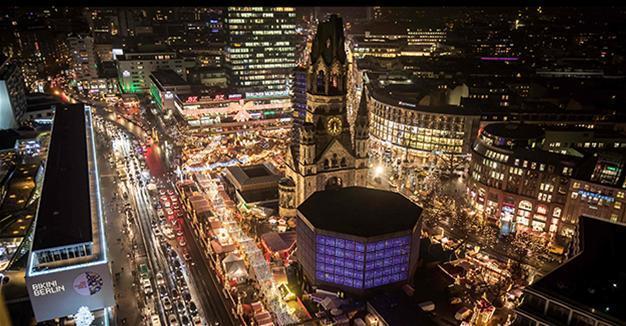Berlin market attack suspect killed in police shootout in Italy
MILAN

AFP photo
Italian police shot dead the man believed to be responsible for this week’s Berlin Christmas market truck attack, killing him after he pulled a gun on them during a routine check in the early hours of Dec. 23.The suspect - 24-year-old Tunisian Anis Amri - travelled to Italy from France, triggering a spate of criticism from eurosceptics over Europe’s open-border Schengen pact.
A police chief said his men had no idea they might be dealing with Amri when they approached him at around 3:00 a.m. (2:00 a.m. GMT) outside a station in Sesto San Giovanni, a suburb of the northern city of Milan, according to Reuters.
Amri is suspected of driving a truck that smashed through a Berlin market on Dec. 19 killing 12 people and wounding another 48 people, and security forces across Europe have been trying to track him down.
The truck mowed through a crowd of people and bulldozed wooden huts selling Christmas gifts and snacks beside a famous church in west Berlin.
Militant group the Islamic State of Iraq and the Levant (ISIL) acknowledged Amri’s death and his suspected role in the German attack - for which it has claimed responsibility - through its Amaq news agency.
“The executor of the Berlin attacks carries out another attack on Italian police in Milan and is killed in a shoot-out,” it said.
Meanwhile, a video posted on Amaq news agency showed Amri pledging his allegiance to ISIL leader Abu Bakr al-Baghdadi and called for ISIL supporters to take revenge of “crusaders” bombing Muslims, Reuters reported.
Milan police chief Antonio De Iesu told reporters that Amri had arrived in Milan’s main railway station from France at around 1 a.m. and had then travelled to Sesto San Giovanni, where two young policemen approached him because he looked suspicious.
“We had no intelligence that he could be in Milan,” De Iesu said. “They had no perception that it could be him otherwise they would have been much more cautious.”
He failed to produce any identification so the police requested he empty his pockets and his small backpack.
He pulled a loaded gun from his bag and shot at one of the men, lightly wounding him in the shoulder.
Amri then hid behind a nearby car but the other police officer managed to shoot him once or twice, killing him on the spot. Amri was identified by his finger prints.
De Iesu said that besides the gun, Amri had been carrying a small pocket knife. He also had a few hundred euros on him but no cell phone. Amri once spent four years in jail in Italy and police were trying to work out if he knew someone in Sesto.
Amri had been caught on camera by German police on a regular stake-out at a mosque in Berlin’s Moabit district early on Dec. 20, Germany’s rbb public broadcaster reported. His movements thereafter are not clear.
He had originally come to Europe in 2011, reaching the Italian island of Lampedusa by boat. He told authorities he was a minor, though documents now indicate he was not, and he was transferred to Catania, Sicily, where he was enrolled in school.
Just months later he was arrested by police after he attempted to set fire to the school, a senior police source said. He was later convicted of vandalism, threats, and theft.
He spent almost four years in Italian prisons before being ordered out of the country after Tunisia refused to accept him back because he did not have I.D. papers linking him to the north African country.
He moved to Germany and applied for asylum there, but this was rejected after he was identified by security agencies as a potential threat. Once again he could not be deported because of a lack of identification documentation.
A spokeswoman for Angela Merkel said the German Chancellor will discuss the deportation of rejected asylum applicants during a phone conversation with Tunisian President Beji Caid Essebsi.
















